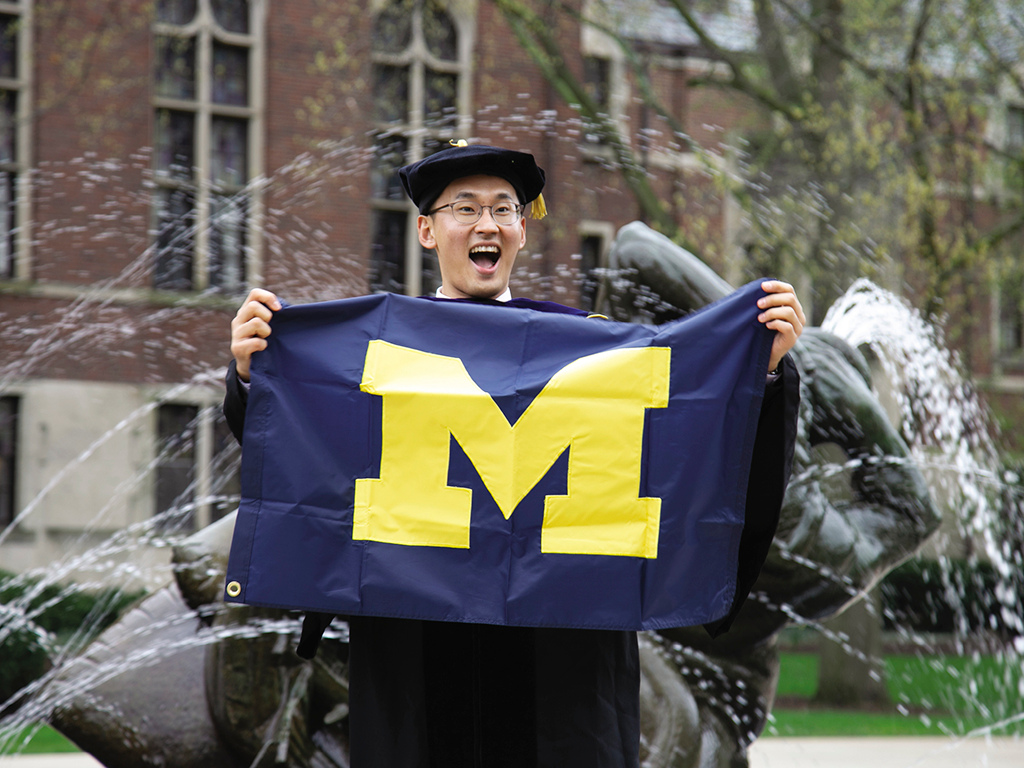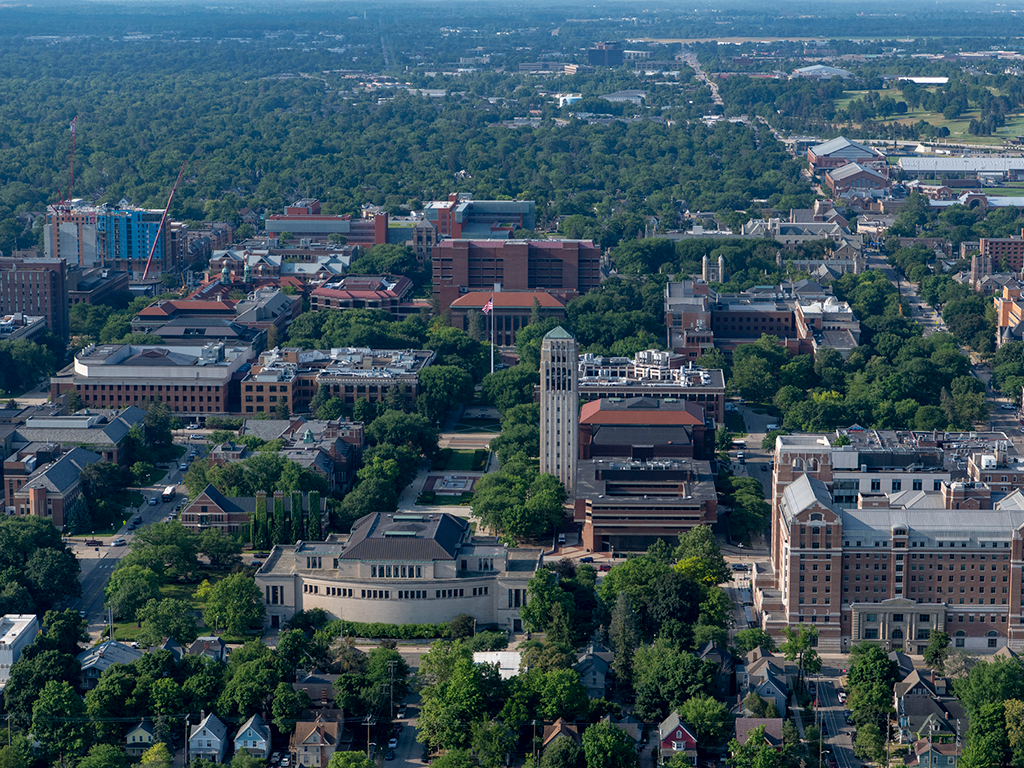
How Rackham Helps
By the Numbers

Extended Time to Degree
Rackham has worked with 100+ graduate programs to implement a process through which doctoral students could receive an additional term or terms of stipend, tuition, and benefits if their degree progress was disrupted due to the pandemic and their funding was running low.
Rackham introduced adjusted grading policies and extended deadlines for candidacy, dissertation, and graduation requirements.

Emergency Funding
Rackham strives to keep graduate students on their academic track—while keeping their holistic wellness at the forefront and supporting them when the unexpected happens.
In the 2020-21 academic year, Rackham awarded 426 emergency fund grants totaling $622,497 in support for students in their most profound times of need.
This near-death experience was one of the lowest points of my life, but I stand here six months later, almost fully recovered and back on track to graduating. Thank you for helping me put myself back together.

Conference and Travel Grants
Rackham awarded 326 conference and travel grants in 2020-21, totaling just over $105,000. This funding has been critical as in-person academic and professional development opportunities become available again.
Rackham Ph.D. student Eva Krägeloh and recent alumni Alec Tewsley-Booth (Ph.D 2019) and Midhat Farooq (Ph.D. 2019) have all benefited from conference and travel funding in their quest to change the way we understand the universe. Until now, the Standard Model of physics outlined four fundamental forces underlying every physical phenomenon.

Mental Health Support
At the recommendation of Rackham’s Graduate Student Mental Health Task Force, Dean Solomon has moved forward with the formation of a Standing Committee on Graduate Student Mental Health and Well-Being. The committee will prioritize the creation of a network of graduate student mental health and well-being advocates in graduate programs across the university. This is just one of ten recommendations going forward, including:
- Creating a program of graduate student mental health and well-being advocates within programs
- Creating a normative expectation for the presence of written mentoring agreements in all doctoral programs and a shared understanding of the critical roles and responsibilities of graduate faculty in this work.

Finding a Resolution
The Graduate Student and Program Consultation Service office works to advocate for a fair process for students when they are experiencing conflict by presenting an alternative perspective for faculty, staff, and students to consider and to assist in problem solving with the students rather than for them. The office also offers proactive opportunities to gain skills in navigating conflict or approaching difficult conversations via workshops and listening circle conversations.
Between the 2020-21 academic year and the fall of 2021, the Rackham Resolution Office served 486 students, faculty, and staff handling a range of challenges concerning access to funding, accommodations, and academic progress and expectations—many of which were directly related to the COVID-19 pandemic and that of ongoing racial injustice.
Each case is treated with confidentiality and consent-based action to establish trust and encourage candidness, and students are often connected with additional support resources.
Researching Rackham
Rackham’s Office of Institutional Research collects and interprets data that guides decisions and programming as improvements to the graduate experience at Michigan.
As a research institution, it is only appropriate that data and the thorough analysis of such guides our path forward. Through the Michigan Doctoral Experience Study (MDES), we can examine the doctoral-student experience over the entire trajectory of graduate study and into early career development. The goals of the study are to inform Rackham programming and policies to better meet student needs and to contribute to the scholarship on doctoral-student success. Using data from this team, Rackham leadership has implemented new initiatives in the areas of graduate student mental health, admissions requirements, and accessibility.